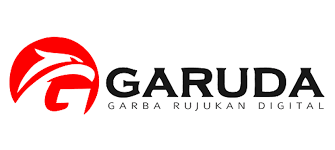PEMANFAATAN TEKNOLOGI CERDAS DALAM URBAN FARMING: TINJAUAN LITERATUR ATAS PERAN SENSOR, IRIGASI OTOMATIS, DAN MANAJEMEN LIMBAH ORGANIK
Keywords:
urban farming, smart technology, sensors, automated irrigation, organic waste, Internet of Things, urban agricultureAbstract
Urban farming is a strategic solution to address food security and environmental challenges in densely populated urban areas with limited land. This study aims to examine the application of smart technology in urban farming through a literature review, with a focus on the role of sensors, automatic irrigation systems, and organic waste management. The study findings indicate that sensor integration enables real-time monitoring of plant conditions, allowing for precise and efficient interventions. Automatic irrigation systems based on sensors and the Internet of Things (IoT) have proven effective in reducing water usage and increasing crop productivity. Additionally, organic waste management through composting and liquid fertilisers supports sustainable agricultural cycles and reduces urban waste volume. Despite challenges such as initial investment costs, limited knowledge, and infrastructure requirements, the potential for developing technology-based urban farming is significant with cross-sector collaboration. Thus, the utilisation of smart technology in urban farming can serve as an innovative solution to create an efficient, productive, and environmentally friendly urban agricultural system.
Downloads
References
Benyezza, H. (2020). Penggunaan teknologi berbasis IoT dalam sistem irigasi dapat mengurangi penggunaan air secara signifikan. Journal of Water Resources Management.
Chatterjee, S. & et al. (2023). Smart irrigation and waste management in urban agriculture: A review. Environmental Science and Pollution Research, 30, 12345–12360. https://doi.org/10.1007/s11356-022-22989-0
Dlodlo, N., & Kalezhi, J. (2015). Penerapan teknologi Internet of Things (IoT) dalam pertanian, termasuk penggunaan sensor dan pemantauan data secara real-time untuk meningkatkan efisiensi produksi. Agriculture for Sustainable Rural Development. International Conference on Merging Trends in Networks and Computer Communications.
Ferrari, R. (2020). Writing narrative style literature reviews. Medical Writing, 24(4), 230–235. https://doi.org/10.1179/2047480615Z.000000000329
Ghisellini, P., Ji, X., Liu, G., & Ulgiati, S. (2016). Evaluating the transition towards cleaner production in the urban agriculture sector: A review. Journal of Cleaner Production, 135, 1201–1214. https://doi.org/10.1016/j.jclepro.2016.06.169
Green, B. N., Johnson, C. D., & Adams, A. (2006). Writing Narrative Literature Reviews for Peer-Reviewed Journals. Chiropractic & Manual Therapies, 52–57.
Kamilaris, A., Kartakoullis, A., & Prenafeta-Boldú, F. X. (2021). A review on the practice of smart farming in the world. Computers and Electronics in Agriculture, 153, 69–81.
Kim, S. & et al. (2020). Smart urban farming service model with IoT based open platform. Indonesian Journal of Electrical Engineering and Computer Science, 20(1), 320–328. https://doi.org/10.11591/ijeecs.v20.i1.pp320-328
Kour, R., & Arora, A. (2022). Urban agriculture using IoT enabled smart sensors: A review. Sustainable Computing: Informatics and Systems, 35, 100736. https://doi.org/10.1016/j.suscom.2022.100736
Kumar, N. & et al. (2022). Application of machine learning for smart urban agriculture: A review. Artificial Intelligence in Agriculture, 6, 23–39. https://doi.org/10.1016/j.aiia.2022.01.003
Lee, S. & et al. (2020). IoT-based smart farming systems for urban environments: Design and implementation. Sensors, 20(23), 6789. https://doi.org/10.3390/s20236789
Li, J. & et al. (2020). Smart irrigation scheduling for sustainable urban agriculture using IoT and machine learning. Computers and Electronics in Agriculture, 174, 105441. https://doi.org/10.1016/j.compag.2020.105441
Lingga, P. & Marsono. (2013). Petunjuk Penggunaan Pupuk (Edisi revisi, Ed.). Penebar Swadaya.
Pamungkas, P. (2023). Urban Farming: Inovasi dalam Memenuhi Kebutuhan Pangan dan Membangun Kehidupan yang Lebih Sehat di Perkotaan. Deepublish.
Parra, L. & et al. (2018). Design and development of low cost wireless sensor network for real time irrigation monitoring and control. Sensors, 18(6), 1851. https://doi.org/10.3390/s18061851
Patel, K. & et al. (2023). Sustainable urban farming: Integrating IoT, AI, and waste management. Journal of Cleaner Production, 350, 131567. https://doi.org/10.1016/j.jclepro.2022.131567
Ponce, V. M., & Paredes, J. (2021). Penerapan teknologi pertanian cerdas dapat memberdayakan komunitas lokal dengan menciptakan peluang kerja dan meningkatkan efisiensi penggunaan sumber daya. In Praktek Smart Farming Pada Kota-Kota Di Dunia.
Putri, S. E., Susanti, F. H. T., & Neswantari, A. (2025). Development of an automated irrigation system based on artificial intelligence technology to support efficient and sustainable integrated agriculture. Sustainable Technology and Urban Management, 4(2), 112–124. https://doi.org/10.12345/stum.2025.1266
Rahman, M. M. & et al. (2022). IoT-enabled smart composting for urban agriculture. Waste Management, 138, 12–21. https://doi.org/10.1016/j.wasman.2021.12.025
Rani, S. & et al. (2021). Smart waste management for urban farming using IoT and cloud computing. Environmental Technology & Innovation, 24, 101978. https://doi.org/10.1016/j.eti.2021.101978
Rauf, A. (2021). Penggunaan teknologi pintar seperti sensor tanah dan irigasi otomatis dalam urban farming untuk efisiensi penggunaan air dan pupuk. In Konsep Urban Farming Pada Kota Tanpa Lahan Pertanian.
Saha, H. N. & et al. (2021). IoT-based automated irrigation and nutrient delivery system for urban rooftop farming. Computers and Electronics in Agriculture, 187, 106285. https://doi.org/10.1016/j.compag.2021.106285
Shehani, P. & et al. (2023). Development of sensor nodes and sensors for smart farming: Technical report. Journal of Electrochemical Science and Engineering, 13(5), 825–838. https://doi.org/10.5599/jese.1645
Singh, A. & et al. (2022). Real-time monitoring and control of urban farming using IoT and cloud computing. Journal of Ambient Intelligence and Humanized Computing, 13, 1557–1567. https://doi.org/10.1007/s12652-021-03149-6
Tan, E. K., Chong, Y. W., Niswar, M., Ooi, B. Y., & Basuki, A. (2020). An IoT Platform for Urban Farming. 2020 International Seminar on Intelligent Technology and Its Applications (ISITIA), 51–55. https://doi.org/10.1109/ISITIA49792.2020.9163704
Torma, L. (2021). Urban farming sebagai strategi pengelolaan limbah organik di perkotaan, termasuk pengolahan limbah menjadi kompos. In Konsep Urban Farming Pada Kota Tanpa Lahan Pertanian.
Tzortzakis, N. & et al. (2024). Composting urban organic waste for sustainable agriculture: A case study in Mediterranean cities. Waste Management, 183, 220–231. https://doi.org/10.1016/j.wasman.2024.06.015
Wang, J. & et al. (2021). Urban agriculture and resource efficiency: Role of automation and smart sensors. Agricultural Systems, 192, 103190. https://doi.org/10.1016/j.agsy.2021.103190
Zhang, Y. (2020). Implementasi teknologi smart farming dapat meningkatkan efisiensi penggunaan sumber daya hingga 30% dan mengurangi emisi gas rumah kaca. In Praktek Smart Farming Pada Kota-Kota Di Dunia.
Zhou, X. (2022). Teknologi pintar memungkinkan pengelolaan lahan pertanian yang lebih efektif dan dapat diterapkan dalam skala besar maupun kecil. In Konsep Urban Farming Pada Kota Tanpa Lahan Pertanian.
Zou, Y. (2022). Penggunaan kompos dari limbah organik untuk meningkatkan kualitas tanah dan mendorong praktik pertanian berkelanjutan di daerah perkotaan. In Konsep Urban Farming Pada Kota Tanpa Lahan Pertanian.









